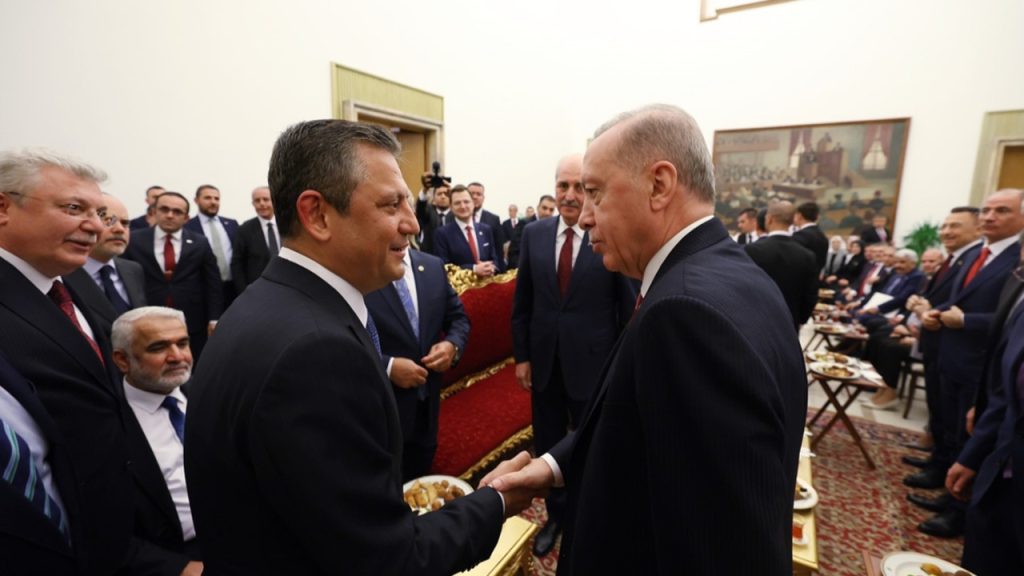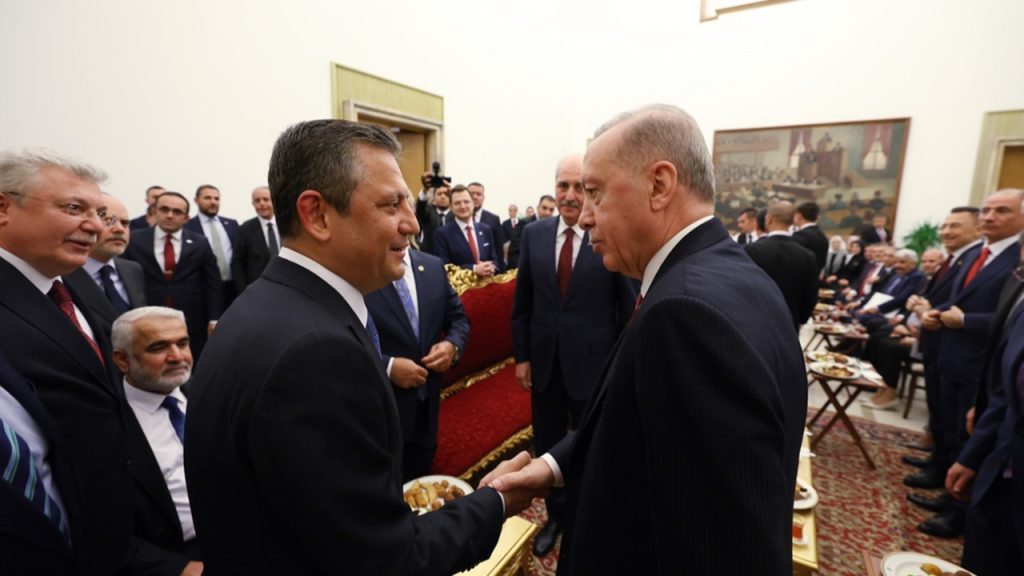

The latest “Turkey’s Pulse” survey by MetroPoll research company shows a decline in votes of both ruling AKP and main opposition CHP. The company director Sencar says the results has raised alarm bells vor the AKP and issues warning for the CHP.
The latest “Turkey’s Pulse” survey by MetroPoll research company has raised alarm bells for the ruling Justice and Development Party (AKP) and issued serious warnings to the main opposition Republican People’s Party (CHP).
MetroPoll Director Özer Sencar noted a decline in votes for both parties compared to April, with the AKP hitting its lowest vote level since its founding.
The May survey shows that the AKP’s raw vote percentage, without distributing the undecideds, fell below 20 percent, dropping to 19.2 percent. In April, it was 20.6 percent.
The CHP’s raw vote percentage, which was 23.8 percent in April, appears to have decreased to 22 percent in the May survey.
When undecided votes are distributed, the AKP’s May vote share drops below 30 percent to 29.1 percent. However this might me misleading since the undecided votes are quite high with 34 percent including the protest votes.
This represents a more than 6-point decline from the 35.3 percent vote share the AKP received in the May 14, 2023 elections, exactly a year ago.
Sencar describes this decline as “alarm bells” for President Recep Tayyip Erdoğan’s ruling party.
New survey: CHP still leads, but…
In MetroPoll’s May survey, the CHP retains its position as the leading party from the March 31 local elections. However, the CHP, which received 37.7 percent of the vote in the March elections, saw its vote share drop to 35.9 percent in the April survey and further to 33.2 percent in the May survey after distributing undecided votes.
Although the CHP’s votes continue to decline compared to March 31—partly due to the post-election environment—it still retains the highest voter loyalty with 75 percent compared to March 31. It is followed by the DEM Party with 65 percent and the AKP with 60 percent.
Nevertheless, according to Sencar, the May results indicate that voters have issued a serious warning to the CHP.
“The CHP has to abandon the narrative ‘We won the local elections, we are soaring, the AKP is sinking.’ There is no such thing! The victory in the local elections does not yet provide a basis for the general election,” he said.
Supporting Sencar’s point, three CHP figures occupy the top three positions in terms of approval ratings in the May survey, pushing President Tayyip Erdoğan to fourth place, yet this hasn’t prevented the CHP’s vote loss.
Yavaş at the top, Özel on the rise
The approval ratings of politicians in MetroPoll’s May survey are full of surprises.
Ankara Metropolitan Mayor Mansur Yavaş, who maintained his top position in April with an approval rating close to 66 percent, appears to have increased his approval by another 2 points.
Following him is Istanbul Metropolitan Mayor Ekrem İmamoğlu, who also increased his approval rating by 2 points from around 53 percent.
President and AKP leader Erdoğan, who was in third place in April with an approval rating of around 38 percent, appears to have started to recover; his approval rating rose by about 4 points to 42 percent in the May survey.
However, Erdoğan seems to have lost his third-place position to CHP leader Özgür Özel. Özel’s approval rating surged by ten points in a month, rising from 36 percent to 46 percent.
Sencar calls this a “tremendous” leap; “If he maintains his popularity for another 1-2 months, he will be heading towards Yavaş.”
CHP’s strengths and weaknesses
While it is uncertain whether Özel’s approval rating will continue to rise, this surge has two main factors.
One is that, despite criticism within the CHP and from left-wing voters, he initiated dialogue with Erdoğan and other party leaders. Voters seem tired of confrontational politics.
The other is that he has started addressing public issues in the streets; the May 18 teachers’ rally in Istanbul and the May 26 retirees’ rally in Ankara are examples of this.
“Talking about society’s problems in the streets always benefits the CHP,” says Sencar; “Because society wants its problems to be discussed.”
On the other hand, Sencar also points out the chronic problems of the CHP:
“The CHP has many local leaders but does not bring them to the forefront. We saw this in the previous election; Yavaş or İmamoğlu would have easily won. By sidelining İmamoğlu and ignoring Yavaş, CHP members handed power to Erdoğan for another 5 years.”
“Erdoğan will not leave the Palace. To date, he has stayed in power first by using (former CHP leader) Deniz Baykal, then Kemal Kılıçdaroğlu. It was not the voters but Kılıçdaroğlu who made Erdoğan president again.”
“If Özel repeats the same mistakes, Erdoğan will remain in the palace until he dies.”
AKP-MHP: A Tumultuous Relationship
The biggest factor in the AKP’s ongoing vote loss over the past year is the economic crisis. Sencar emphasizes that economic issues dominate the top of the list of voter complaints in the May survey.
This is why Erdoğan is trying to mitigate the destructive impact of confrontation for March 31 election defeat within the party.
According to Sencar, there is dissatisfaction within the AKP brought on by March 31. Some officials and deputies blame the leader, but since they cannot express this openly, they “gossip.”
Reminding Erdoğan’s authority over AKP, Sencar says “In that terms, there is no problem in the AKP. It is necessary to look at how they will to solve the problems arised from the defeat.”
As for the visible tension between the AKP and MHP? Sencar makes an interesting analogy:
“This is like a tumultuous couple who make up and fight. Both have clear goals. Erdoğan wants to stay in power, and the MHP, draws Erdoğan’s red lines. They will continue in this way.”


